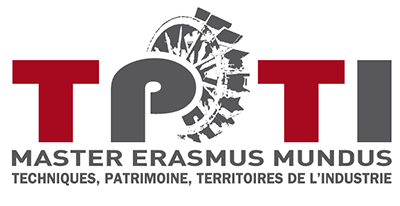Semester 1 - Paris
Module 1.1. Overall methodological approaches.
History of technology, M. Camolezi
Drawing on a wide range of objects and historiographical approaches, this course offers an overview of the history of technology in Europe from the early eighteenth century to the first half of the twentieth century. Not only does it attempt to give an account of the diversity of technical phenomena that mark the history of contemporary Western societies, but it also allows students to experiment with different perspectives that mark the historiography of technology. To this end, it encourages the adoption of approaches focused on objects as well as those oriented towards the study of institutions (schools, legal institutions that founded property rights), projects (editorial, professional, architectural, disciplinary, artistic) and actors (inventors, engineers, doctors).
Module 1.2. Practical training module.
a/ Workshops : Project Paris Patrimoine, J-L. Rigaud
The aim of the Paris Patrimoine project is to examine the various traces of Paris's history that are still visible in a given geographical area, as well as the city's development. The project brings together different research disciplines (history, geography, architecture, urban planning, sociology, etc.) and combines theoretical study and practical fieldwork. The aim is to study and question what makes up the history and identity of a city in order to better preserve, adapt and develop it. In this way, the approach proposes a new way of looking at the city, the choice of memories and the developments that project it into the future.
b/ Tutored project
The students are divided into work groups by cross-referencing their initial skills (historians, archaeologists, architects, cultural professions, etc.). They are assisted by a tutor. Each work group is given a technical object to study. They then decide on the realization: a museum valorization of the site or collection, the cultural or cultural setting of the site or collection, the organization of an exhibition.
c/ The computer project with historical-patrimonial content, B. Rivalland
Publishing content on the Internet has become very accessible to everyone today. But how do you select the tool that best suits your purpose? Is it enough to write content online? This course presents the different services that exist on the Internet to carry out a digital project and guides students in writing specifications for IT projects.
Module 2. Fundamentals.
a/ Techniques and Heritage, V. Nègre,
The seminar deals with themes that are the subject of recent reflections in the history of techniques. It focuses on technical collections held in museums and associations throughout Europe. The history of institutions and associations will be examined, as well as the history of the collections and the conservation professions. We will also reflect on the process of patrimonialization of technical objects.The seminar deals with themes that are the subject of recent reflections in the history of techniques. From 2022 onwards, it will focus on technical collections held in museums and associations throughout Europe. The history of institutions and associations will be examined, as well as the history of the collections and the conservation professions. We will also reflect on the process of patrimonialization of technical objects.
Abandoned places. What can the social sciences do with it ?, N.Offenstadt
Abandoned places are enjoying renewed popularity today due to practice of urban exploration, increasingly globalized. This gives access to sites which are not always documented otherwise, notably not in their abandonment time. But beyond the pleasure of discovery, what are social science researchers can find there? This seminar will attempt to respond by developing three axes of analysis :
- The site in its materiality, its environment, its representations and its spatiality.
- Informal social uses of these places, legal and illicit.
- The material remains which remain there, and which can be observed (architecture, traces scriptures, machines, objects etc.).
b/ Global histories and technologies (19th-20th centuries), C. Lacheze
Like the rest of the discipline, the history of technology is now engaged in a process of 'equal writing', the aim of which is, among other things, to deconstruct the Western mystique of progress (Adas 1989). How is this history to be written? Starting with a classical reading of technology as the 'instruments of empires' (Headrick 1981), the seminar will explore the ways in which David Arnold (2005) and David Edgerton (2013) have moved beyond this. Organised in collaboration with the research department of the musée du quai Branly, the course will pay close attention to the intersection between history and anthropology, a discipline that has made a major contribution to the foundation and renewal of questions about the relationship between man and his technical environment (Latour and Lemonnier 1994).
Module 3. Scientific environment.
a/ Webminar TPTI, Web Coffee
b/ A complementary disciplinary seminar of your choice
Scientific, technical and industrial cultures
The seminar allows the acquisition of skills related to the conservation of local scientific and technical cultural heritage; the mastery of the popularization of the discourse on the place of science and technology in society. It is composed of four main modules: material heritage of science and technology in context (O. Lassère); heritage and history of scientific and technical heritage and museums, and cultural policy in France (L. Contant, R. Declementi); history and law of cultural institutions (P. Barthélémy).
Historical technical environments and industrial heritage
The seminar provides scientific expertise on the study and analysis of the physical environments in which a technique was used and the skills to shed light on the cultural, economic and social practices of the techniques, in order to participate in the city's debates on its current and future challenges. It is composed of four main modules: archaeology of technical structures (I. Lafarge, E. Rieth, V. Serna, F. Tereygeol); cartography and GIS (J. C. Balois); political economy of the environment (S. Grevsmühl); legal protection of sites and landscapes (J. Gartner Negrin).
c/ Languages
LV1: French or introduction to Italian or Portuguese for French speakers
LV2: English





